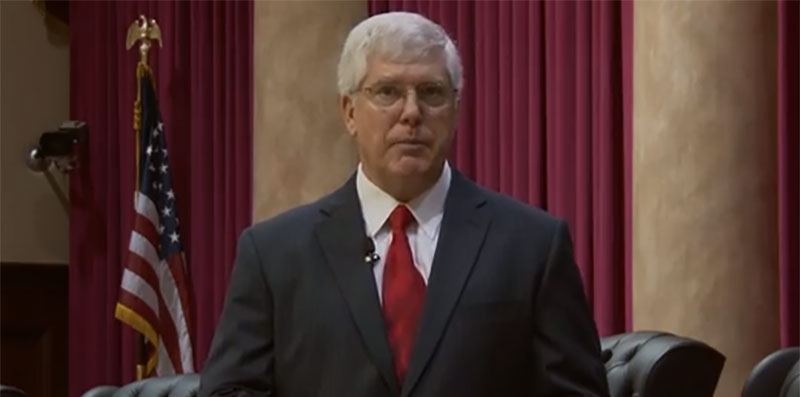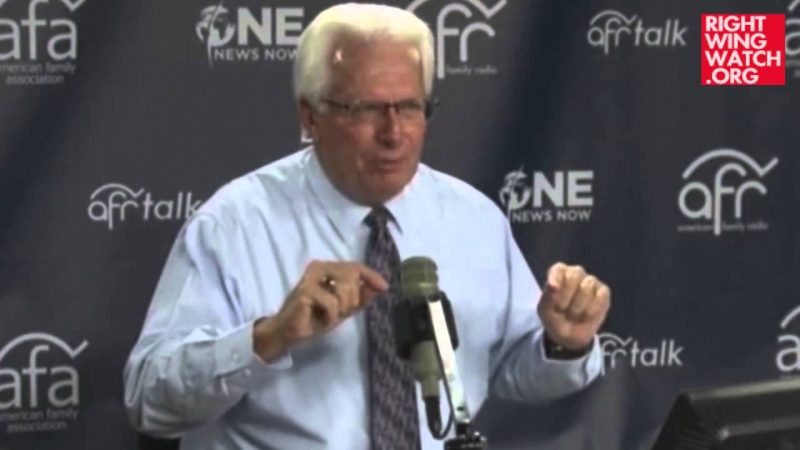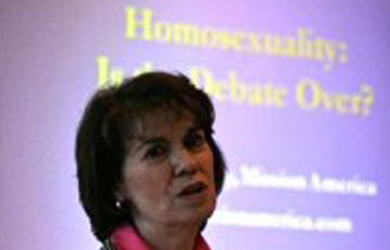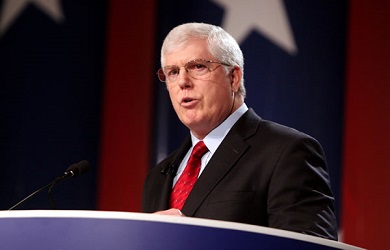As I noted in today’s SCOTUS round-up, a lot of the discussion about the next Supreme Court nominee at the moment seems to be focusing on how Republicans and their Religious Right allies would respond to a nominee who was gay.
This entire discussion stems from the fact that Sen. Jeff Sessions stated that a nominee’s homosexuality would not be “an automatic disqualification” … so hooray for progress.
But while Sessions was recently saying that gays or those with “gay tendencies” aren’t “automatically disqualified” from being a Supreme Court justice, he is now back-tracking, saying a gay nominee “would be a big concern that the American people might feel [uneasy about.]”
Of course, others have no need to back-track in this manner because they have already declared that a gay nominee would be unacceptable, with Harry Jackson saying it would be “tantamount to opening the gate for the other side” and Matt Barber proclaiming that “it’s hard to believe we’re even having a conversation about whether a sitting United States president will count deviant sexual behavior as a favorable qualification in determining a nomination to the highest court of the land.”
And then there are those simply stating that a gay nominee might be a “bridge too far,” whatever that is supposed to mean.
In essence, the Right’s response to this question has been to declare that while a gay nominee would not be opposed solely because of their sexuality, they would still be opposed if their sexuality makes them incapable of being objective. As Bruce Hausknecht of Focus on the Family put it: “sexual orientation only becomes an issue if it affects their judging.”
This point was echoed by Peter Sprigg of the Family Research Council who, just a few years ago, was saying that “homosexuality is [not the] kind of cultural identity that should be sought in a judge,” but is now saying that a nominee who was gay would be opposed because they wouldn’t be able to remain objective when deciding gay-related issues:
Peter Sprigg, a senior fellow at the conservative Family Research Council, says that “the real issue would not be the person’s private life but the issue would be would they be imposing their personal ideology upon the court. In this case would they be imposing a pro homosexual ideology, a pro-same sex marriage ideology.”
Today, Greg Sargent followed up with the Family Research Council for an explanation of just what this means and here is what he was told:
Now a second top religious right organization, Tony Perkins’ Family Research Council, is declaring something similar — it’s a shift in emphasis from its harder-line stance against gay judges two years ago, and another sign of the changing times.
To be sure, the group is hedging a bit. Its position : Being gay would not in and of itself rule out getting the group’s support, though having a “pro-gay ideology” would.
“We don’t think that the process of selecting a Supreme Court justice should include asking questions about a person’s personal sex life,” Peter Sprigg, senior fellow at the Family Research Council, told me moments ago.
“But if a person does publicly identify as gay or lesbian, or particularly if a person has been involved with homosexual rights activism at any level, then there would have to be serious questions asked about whether he or she would impose a pro-gay ideology on the court.”
Let’s apply the test I have been using to explain hate crimes protections in my recent posts whereby we replace references to gays with references to Christians, and apply it to this statement to see if it stands up to scrutiny:
Being CHRISTIAN would not in and of itself rule out getting the group’s support, though having a “pro-CHRISTIAN ideology” would.
“We don’t think that the process of selecting a Supreme Court justice should include asking questions about a person’s personal RELIGIOUS life,” Peter Sprigg, senior fellow at the Family Research Council, told me moments ago.
“But if a person does publicly identify as CHRISTIAN, or particularly if a person has been involved with CHRISTIAN activism at any level, then there would have to be serious questions asked about whether he or she would impose a CHRISTIAN ideology on the court.”
How do you imagine the Religious Right would respond to that sort of statement?








